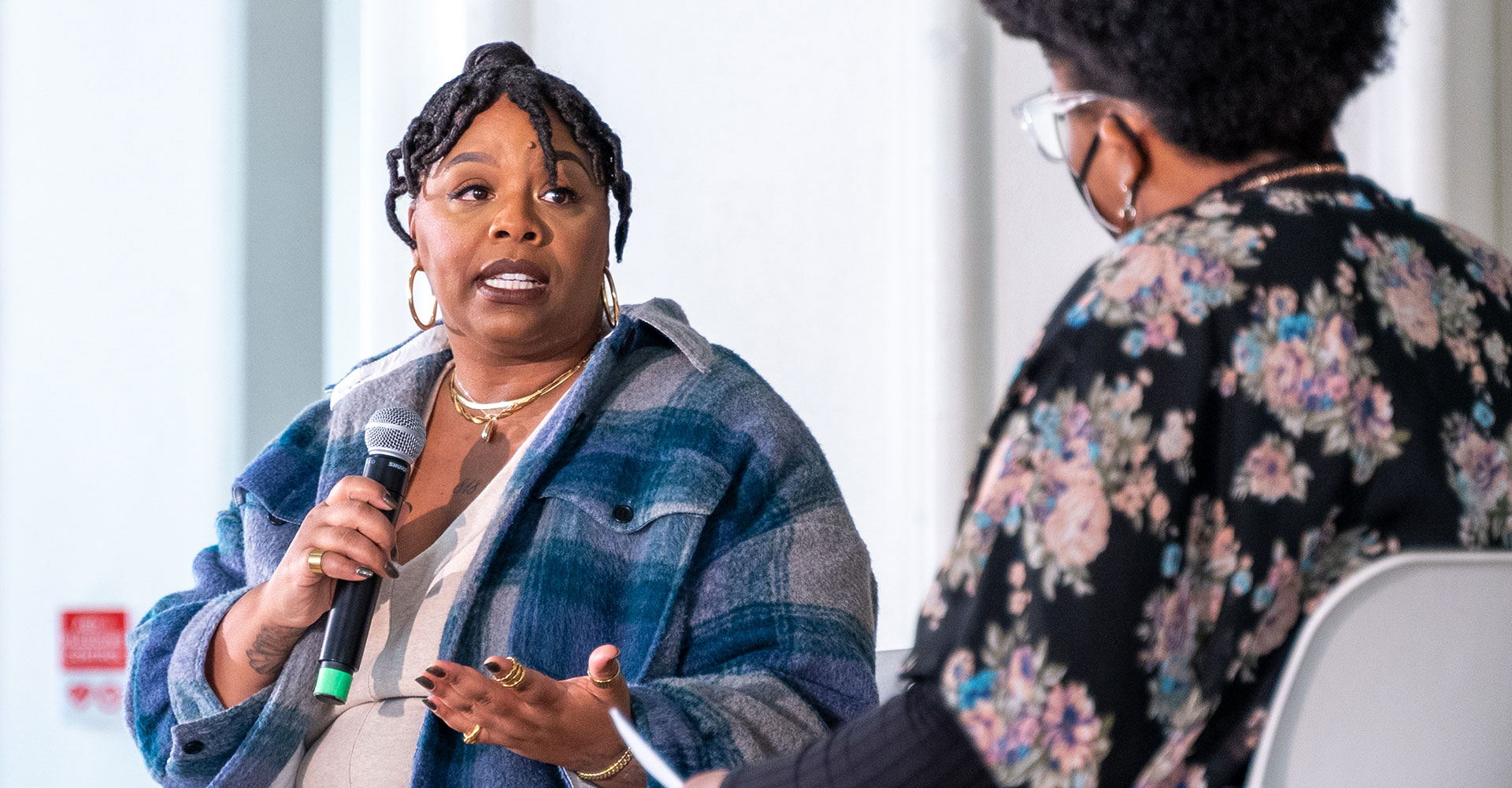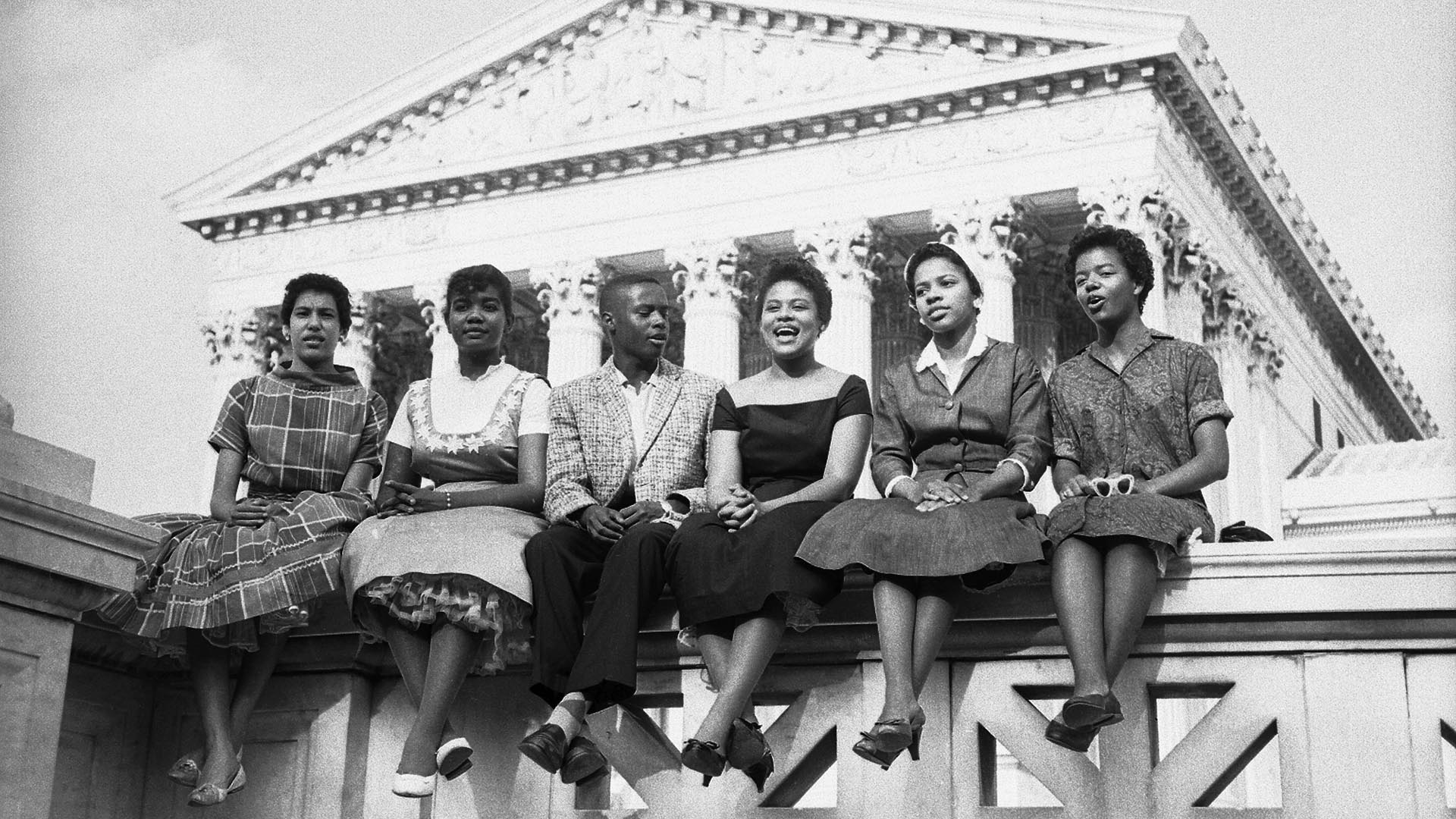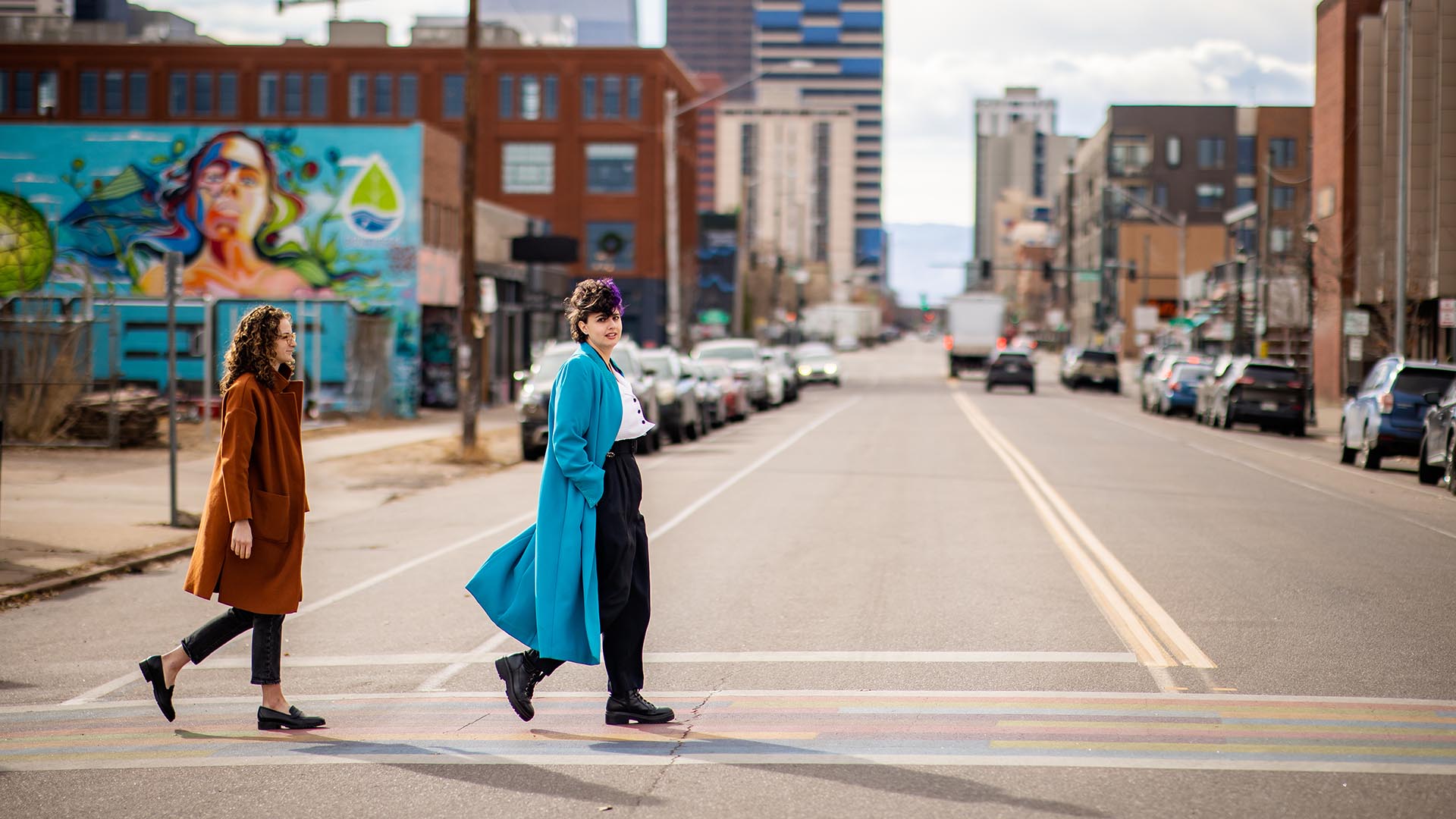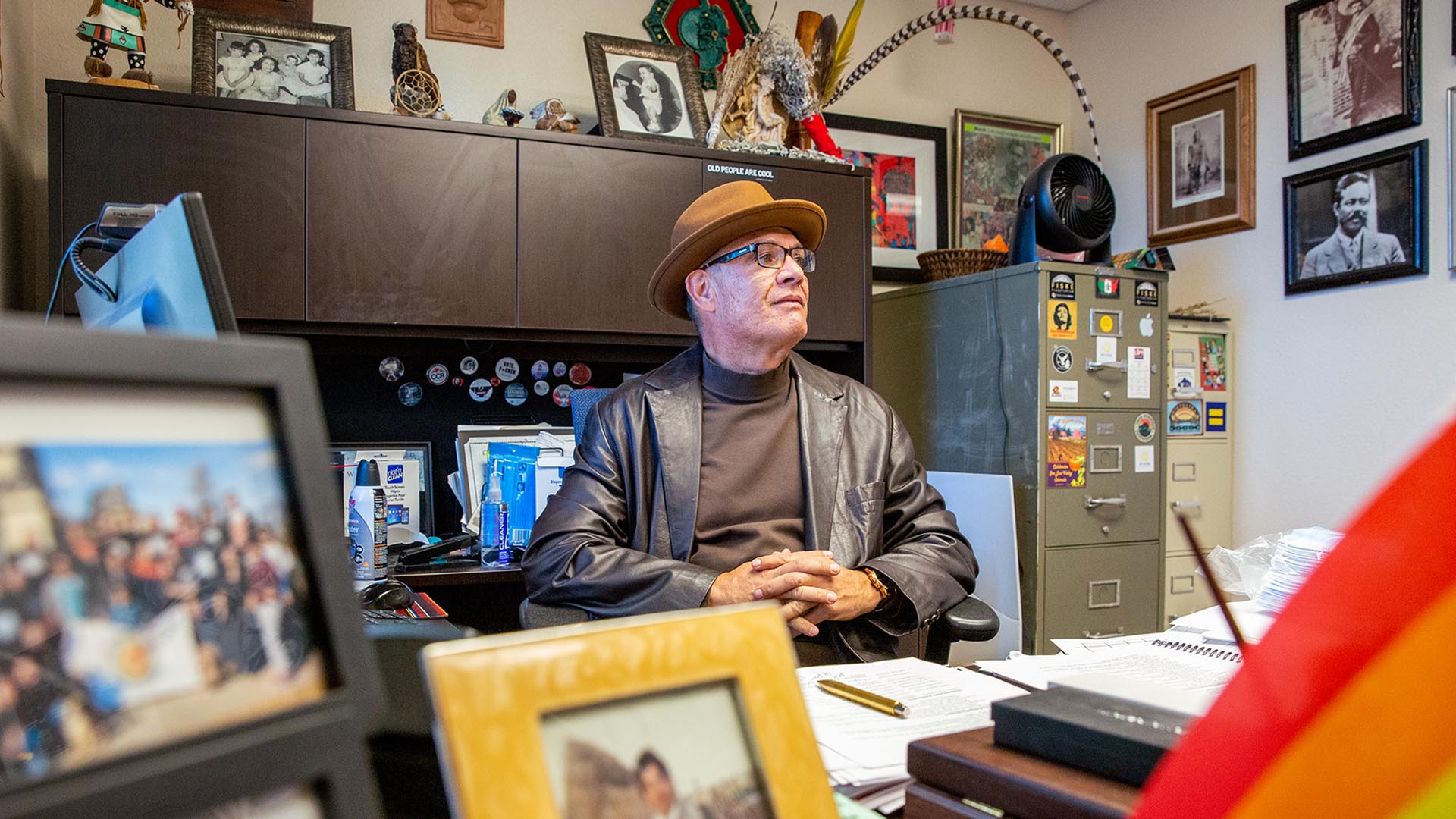Redefining policing is critical to public safety, Bridge Speaker says
Black Lives Matter co-founder Patrisse Cullors stresses move from ‘economies of punishment’ to ‘revolutionary acts of care.’

Patrisse Cullors, Los Angeles-based co-founder of the Black Lives Matter movement and New York Times bestselling author, spoke to a packed house as part of the 33rd annual Bridge Speaker Series at Metropolitan State University of Denver. Cullors expressed the need for a “come-to-Jesus moment” around the term “public safety” in response to an attendee’s question.
“Who gets to decide what (public safety) is?” she asked the crowd at St. Cajetan’s Event Center and online. “I’ve found that when you go to Black people’s houses and ask them if police make them feel safer, they say no. It’s not public safety if the entirety of the public doesn’t feel safe.
“Let’s do it differently. Start by asking, ‘What does being safe look like? What would you need to feel safe?’”
RELATED: Overcoming the pandemic of racism
In addition to discussing her personal journey into activism, Cullors recounted her efforts organizing a national coalition to successfully oppose the $3.5 billion construction of two proposed jails in Los Angeles County.
She also addressed the term “abolitionist,” noting its etymological roots in getting rid of overt chattel slavery but replacing it with a prison-industrial complex disproportionately impacting Black and Latino communities.
“We’d created an entire system that benefited from caging human beings,” Cullors said. “I remember thinking, ‘There has to be another way.’”

She highlighted some of the guidelines from her newest publication, “An Abolitionist’s Handbook: 12 Steps to Changing Yourself and the World,” such as the need to think about large-scale concepts while having courageous conversations in day-to-day relationships, noting the power of imagination and nuance of context.
“(Social media and) technology are the grounds of where much conflict occurs but not the grounds of where resolution happens,” Cullors said. “We need to slow ourselves down and lead with our values. … How we are in relationship with each other builds the world we want to live in.
When asked about the “Defund the Police” conversation, she noted that contemporary abolitionism existed before 2020 (when the term was publicized during protests related to the murder of George Floyd by a Minneapolis police officer) and that the heart of the movement is about resource prioritization. With more than 50% of Los Angeles’ budget going to the city’s Police Department, Cullors said the funds could be significantly more effective if they were reallocated to basic-needs relief for food and shelter. She also addressed the effects of outsourcing roles to police that would be better served by social workers.
RELATED: Joy Reid gets real on race
One such example — Denver’s Support Team Assistance Response, or STAR program, which was launched by two MSU Denver alumni — was just approved for $1.4 million in City Council funding to expand its successful pilot fleet from one van to six. The program diverts nonemergency calls to dispatchers to medical and mental-health responders and away from police.
Cullors also detailed efforts such as Los Angeles County’s Alternatives to Incarceration working group as shifting away from “economies of punishment” by practicing what writer and civil-rights activist Audre Lorde described as “revolutionary acts of care.”
“When you neglect a neighborhood and leave people to die, that’s punishment,” Cullors said. “We’re trying to move to a mindset of ‘care first; jail last.’”
The MSU Denver Bridge Speaker is the Gender Institute for Teaching and Advocacy’s annual marquee event marking the transition between Black History Month and Women’s History Month. The 2022 version was co-sponsored by the University’s Office of Diversity and Inclusion; the Center for Equity and Student Achievement; the Center for Multicultural Engagement and Inclusion; the LGBTQ Student Resource Center; the Department of Gender, Women and Sexualities Studies; the Department of Africana Studies; the Department of Chicana/o Studies; the Department of Political Science; the Department of Social Work; and the Department of Criminal Justice and Criminology.




